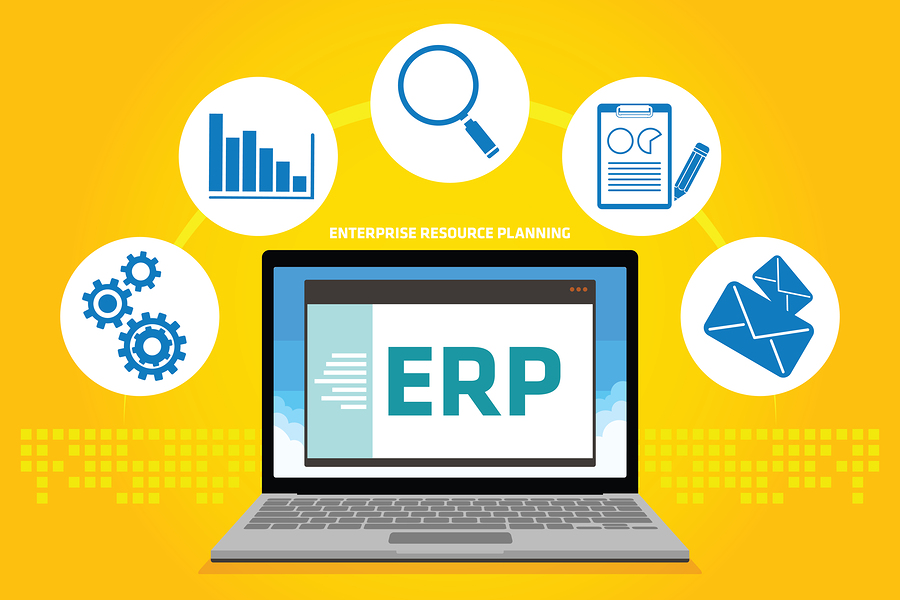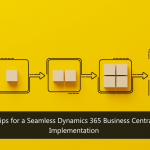
Enterprise Resource Planning (ERP) systems streamline operations, improve efficiency, and drive business growth. However, ERP implementation is a complex process that requires careful planning and execution. Many businesses encounter significant challenges that lead to delays, cost overruns, and subpar results. To ensure a successful ERP implementation, businesses must be aware of common pitfalls and how to avoid them. Here are ten key mistakes that organizations should steer clear of when implementing an ERP system.
1. Lack of Clear Objectives
One of the biggest mistakes in ERP implementation is failing to define clear goals. Without well-defined objectives, companies struggle to align the ERP system with their needs, leading to inefficiencies and poor results. Before implementation, businesses should establish specific, measurable goals that address their operational challenges and long-term growth strategies.
2. Choosing the Wrong ERP System
Not all ERP solutions are the same. Some businesses select a system that lacks essential functionalities, while others opt for overly complex software that is difficult to manage. The ideal ERP system should align with your business processes, be scalable, and integrate well with existing tools.
3. Underestimating Implementation Costs
Many companies underestimate the total cost of ERP implementation. Beyond software licensing fees, there are expenses related to customization, training, data migration, and ongoing support. A comprehensive budget should account for all these factors to prevent unexpected financial strain.
4. Inadequate Training and Change Management
ERP systems impact daily workflows, making employee training and change management crucial. Companies that fail to invest in proper training often face resistance, decreased productivity, and ineffective use of the system. A structured training program and a strong communication plan help employees embrace the new system.
5. Poor Data Migration Strategy
Transferring data from legacy systems to a new ERP is a complex task. If data is inaccurate, incomplete, or duplicated, it can cause system errors and inefficiencies. Businesses should thoroughly clean, validate, and structure data before migrating it to ensure smooth functionality.
6. Ignoring System Customization Needs
While many ERP systems offer extensive features, some level of customization is often necessary to fit unique business processes. However, excessive customization can increase costs, complexity, and implementation time. Companies should strike a balance between using standard functionalities and implementing essential customizations.
7. Lack of Executive Sponsorship and Support
Successful ERP implementations require strong leadership and executive buy-in. When upper management is disengaged, projects often lack direction, funding, and internal support. Business leaders should champion the ERP project, ensure alignment with strategic goals, and encourage organization-wide adoption.
8. Not Considering Future Scalability
Some businesses implement ERP solutions that meet their current needs but fail to consider future growth. As companies expand, their operational demands evolve, requiring a system that can scale accordingly. Selecting a cloud-based ERP ensures flexibility and long-term viability.
9. Ineffective Testing Before Go-Live
Skipping thorough testing before the system goes live can result in major disruptions. Comprehensive testing—including user acceptance testing (UAT) and performance testing—helps identify and resolve issues before they affect business operations.
10. Working with an Inexperienced ERP Partner
One of the biggest mistakes a company can make is choosing the wrong Microsoft Solutions Partner or attempting to implement the ERP system alone. Many businesses struggle with failed implementations due to partners who underestimate project scope or lack the expertise to handle complex requirements.
Why Working with an Experienced Microsoft Solutions Partner Matters
A trusted Microsoft Solutions Partner brings expertise, industry knowledge, and best practices to ensure a smooth ERP implementation. They help businesses:
- Select the right Microsoft Dynamics ERP solution
- Align ERP functionalities with business goals
- Ensure proper system integration and data migration
- Provide training and ongoing support for maximum efficiency
Rather than struggling with an inexperienced partner or a DIY approach, working with an established Microsoft Solutions Partner significantly increases the success rate of your ERP implementation.
For businesses looking to avoid costly mistakes and ensure a seamless transition, Technology Management Concepts (TMC) is the ideal ERP implementation partner. With years of experience in Microsoft Dynamics 365 Business Central and other ERP solutions, TMC helps companies streamline their processes, minimize risks, and achieve long-term success.
Final Thoughts
ERP implementation is a significant investment, and avoiding these pitfalls can save businesses time, money, and frustration. By setting clear goals, choosing the right ERP solution, preparing for data migration, and partnering with a reliable Microsoft Solutions Partner, companies can successfully implement an ERP system that drives efficiency and growth.
Looking for expert guidance on your ERP journey? Contact TMC today and ensure a successful ERP implementation from start to finish.





